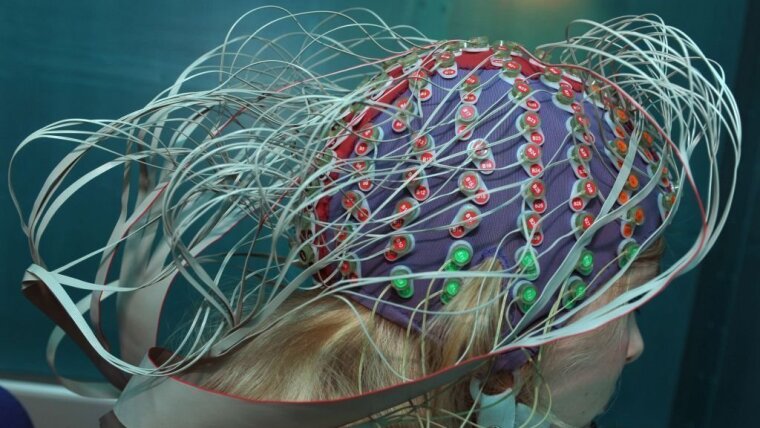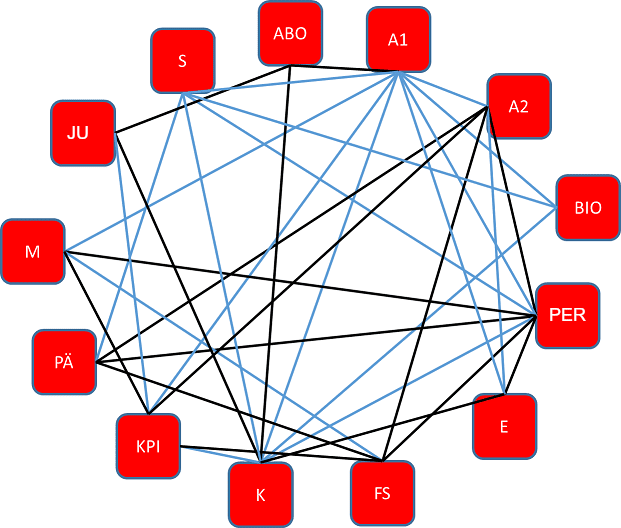
As an empirical science, psychology explores the complex interplay of biological, social, and cognitive elements that contribute to human behavior and experience. Through a close intertwining of basic and applied research, the Institute of Psychology at Friedrich Schiller University Jena strives to advance social and political discourse on an international level. The institute comprises 13 departments:
| Departments | |
| ABO |
Arbeits-, Betriebs- und Organisationspsychologie (Industrial, Work and Organizational Psychology), Prof. Trimpop |
| A1 | Allgemeine Psychologie IExternal linkde (General Psychology I), Prof. Schweinberger |
| A2 | Allgemeine Psychologie IIExternal link (General Psychology II), Prof. Rothermund |
| BIO | Biologische Psychologie und Kognitive Neurowissenschaft de (Biological Psychology and Cognitive Neuroscience), Prof. Kovacs |
| PER | Persönlichkeitspsychologie & Psychologische Diagnostik (Personality Psychology & Psychological Assessment), Prof. Neyer |
| E | Entwicklungspsychologie (Developmental Psychology), Prof. Riediger |
| FS | Forschungssynthese, Intervention und EvaluationExternal link (Psychological Research Synthesis, Intervention and Evaluation), Prof. Beelmann |
| K | Klinische Psychologie de (Clinical Psychology), Prof. Croy, Prof. Weiß |
| KPI | Klinisch-psychologische Intervention de (Clinical Psychological Intervention), Prof. Wilz |
| M | Psychologische MethodenlehreExternal link (Psychological Methods), Prof. Koch |
| PÄ | Pädagogische Psychologie de (Educational Psychology), Prof. Noack |
| JU | Jugendforschung (Youth Research), Prof. Weichold |
| S | Sozialpsychologie (Social Psychology), Prof. Kessler |
Oriented towards research, the Institute of Psychology at FSU Jena receives external funds of about 3.5 million Euros per year, with 1.3 million Euros coming from the German Research Foundation (DFG). Research activities prominently focus on the areas of perception and interaction as well as development and health.
Research focused on perception and interaction examines the fundamental processes of perception and their social settings and consequences. Here, special attention is paid to fundamental research concerning the neurological, cognitive, emotional, and motivational processes that mediate the interplay of perception and social interaction. This focus promotes a deeper understanding of social interactions in dyads and groups, which is highly relevant to science and society, for example, for the encouragement of cooperation and the resolution of social conflicts.
Research focusing on development and health is concerned with the conditions and consequences of successful and pathological developmental processes across the lifespan. This includes the development of prevention and intervention programmes. Based on the underlying premise that individual development takes place in a social context, the microsocial and organisational processes as well as the societal framework have to be accounted for in research of individual development. On these grounds, scientifically and politically relevant themes such as aging, work-life, life-long learning or the prevention of violence are addressed.
With approaches spanning from experimental, correlative and longitudinal field- and laboratory research, a broad methodological field is covered that ranges from neuroscientific paradigms to those of the social and behavioural sciences. Both core research areas employ the latest in current methodology in multimodal data collection and statistical analyses. These continuously developing areas can roughly be summarized as follows:
|
Perception and Interaction |
Development and Health |
|
I. Neuronal and social processes of perception and cognition (A1, BIO, K, S) e.g., Neuropathic pain, hypnosis, vision, facial recognition, vocal recognition
II. Motivation, emotion and action (A1, A2, BIO, E, KPI) e.g., Views on aging, self-regulation, implicit processes
III. Social interactions and relations within and between groups (PER, FS, PÄ, S) e.g., Social discrimination, personal relationships |
IV. Development and education across the life span (ABO, A1, A2, PER, E, PÄ, JU) e.g., Aging, developmental trajectories, Lifelong Learning, working situations
V. Biological fundamentals, diagnostics and therapy of psychopathological disorders (A1, K, KPI, M) e.g., Dementia, focal cerebral injury, autism, psychotherapy research
VI. Work and health (ABO, FS, K, KPI, JU) e.g., workplace safety, prevention of violence, care of relatives, health promotion measures |
|
VII. Methods (A1, A2, BIO, FS, PER, KPI, M) e.g., Evaluation, intervention, causality, biomarker development |
|
Exchange and cooperation within and between these two main research foci is encouraged within a tight network between the department's sections (blue lines mark cooperations in perception and interaction, black lines account for the area of development and health):
Vernetzung der Forschungsbereiche
Graphic: FSU JenaThis network offers a dynamic foundation for joint research cooperation within the department and its research and educational facilities, as well as with other local faculties and departments (e.g., Biology, Educational Sciences, IT, Medicine, Economics, Sociology, Sport Science, Linguistics) or extramural institutions (e.g., Max-Planck-Institute for the Science of Human History, Fraunhofer-Institute for Applied Optics and Precision Engineering, Leibniz-Institute on Aging, Centre for Research on Right Wing Extremism, Democratisation and Integration).
